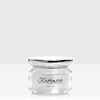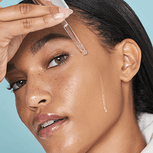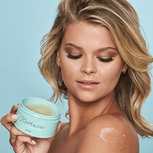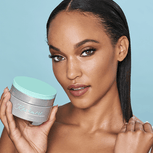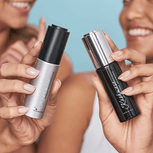The most imperative step in executing a successful and highly-effective skincare regimen is determining and understanding your specific skin type and learning how it adapts to certain circumstances and changes. Whether those changes are due to seasonality, hormones, diet, health, disorders, genetic predispositions or aging all of these fluctuations and environmental influences can ultimately change your skin type over time.
Your skin type should fall into one of the following categories: normal, normal/combo, oily, dry, or sensitive/reactive.
Here is a quick guide to the products/ingredients you should be looking for when facilitating your brand-new, modified skincare regimen:
Dry Skin
Skin will feel tight and tough throughout the day with noticeable flaking issues. Largely due to genetics, lifestyle/diet, hormonal fluctuations, and climate. Dehydration is probably single-handedly the leading cause of dry skin, so drink up!
Also, Implement a diet rich in mono-saturated fats, like avocados, fatty fish (salmon), and nuts. Employing mild, daily exfoliation using gentle, non-abrasive ingredients will help rid of the pesky flaking, while allowing your treatment serums and rich moisturizers/creams to deeply penetrate your dehydrated epidermis, leaving it more soft and supple.
Look for creams and moisturizers enriched with ceramides, hyaluronic acid, glycerin, and marine actives (sea algae) for the ability to attract and retain moisture for longer periods of time. Skin-softening emollients, including olive-derived squalane and camellia oil help smooth and soothe your skin to baby-soft silkiness. Beautifying botanical oils such as sweet almond, jojoba, grapeseed, and olive are also wonderful choices to keep things plump and pretty.
Normal/Combo Skin
Skin may feel tight or dry on the cheeks, making it vital to find a lightweight moisturizer that isn’t too heavy, yet hydrating enough to attract and retain moisture where it’s needed the most. Try gel-like moisturizers that instantly melt into the skin and won’t cause breakouts/pore-clogging. Be sure to gently exfoliate on the daily, to keep the well-lubed T-zone area in check.
The key is to keep your oily and non-oily areas well-balanced without over-hydrating and upsetting the moisture mantel. Any fluid-like moisturizer rich in natural, skin-friendly botanical oils will beautifully balance your normal/combination skin types.
Oily Skin
Excess sebum produced from the overzealous glands found in oily skin can often leave pores congested and undesirably enlarged. However, oily skin types seem to age at a much slower rate because the skin is constantly being hydrated with its own natural moisturizing efforts, leaving skin supple, dense, and younger-looking with little to no wrinkling. We’re jealous!) To help mitigate sebum and bacteria build-up in pores, use daily enzymatic exfoliation methods to encourage cellular turnover. Cleansing Facial Gel
Sensitive Skin
If you readily experience flare-ups, redness, and allergic reactions, including rashes and itchiness, don’t despair. Always introduce one new product to your skincare routine one at a time, so if you do have an adverse reaction, you won’t need to play guessing games as to which product is the complexion-killing culprit. You can always perform a patch test on the inside of your arm to assess the volatility of a new product. Coconut Rose Facial Masque
Managing sensitive skin can prove to be challenging since it takes significant time and effort in determining which ingredients/products are responsible for the inflammation and irritation. Always glean products whose labels specifically identify them as non-irritating and safe-for-sensitive-types, and that are free of sulfates, synthetic fragrances, parabens, gluten, mineral oil, urea, DEA/TEA, and phthalates.
Taking the simple steps to determine where your skin is currently at will be essential in providing the proper care and maintenance for it to function at its beauty best.

